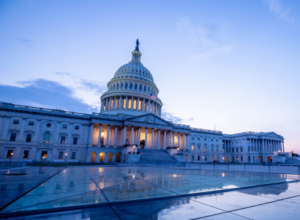
June 15, 2014
Washington Court of Appeals Ruling on Municipality’s Immunity from Taxation by Another Municipality
In an important decision about the scope of a municipality’s immunity from taxation by another municipality, the Washington Court of Appeals, Division III recently held that a city’s general taxing power is sufficiently broad to authorize taxation of other municipalities’ proprietary activities, including water sales by a public utility. See City of Wenatchee v. Chelan Cnty. Pub. Util. Dist. No. 1, ___ Wn. App. ___ (May 20, 2014). By contrast, activities that are public or governmental in nature are immune from taxation absent express authorization by the state legislature. King County vs. City of Algona, 101 Wn.2d 789 (1984) (solid waste disposal).
In May 2012, the City of Wenatchee (“City”) brought a declaratory action against Chelan County Public Utility District No. 1 (“District”), seeking a determination that the City is authorized to impose a utility tax on the District’s domestic water sales within city limits. Reversing the decision by the Superior Court in favor of the District, the Court of Appeals held that explicit legislative authorization is only required for taxation of governmental functions (e.g., solid waste disposal and fire protection services), not activities that are proprietary in nature (e.g., provision of electricity and street construction and maintenance). Because Washington courts have classified the sale of water as proprietary, the court reasoned that the City’s general authority to tax “all…kinds of business” under RCW 35A.82.020 supports the City’s taxation of the District’s sales, except to the extent the District can demonstrate that its revenues were derived from fire protection services, a governmental function. In a separate concurring opinion, Judge Fearing described the current distinctions between proprietary and governmental functions as “outdated” and “razor thin, if not silly,” and wrote that, if not bound by precedent, he would conclude that distribution of drinking water is a “quintessential governmental function” that should not be taxed.
The Court of Appeals decision raises issues that appear ripe for review by the Washington Supreme Court. Specifically, the majority opinion’s reading of the constitutional and statutory underpinnings for the City’s taxation authority raises conflicts with decisions of the Washington Supreme Court and Court of Appeals. For example, the majority appears to read key language out of the Washington Supreme Court’s decision in King County vs. City of Algona, 101 Wn.2d 789, 681 P.2d 1281 (1984), which holds that the grant of taxation authority in the exact same B&O tax statute, RCW 35A.11.020, “contains no express authority to levy a tax on the state or another municipality” and that “[t]o allow the City to impose the tax in this case would violate the established rule that municipalities must have specific legislative authority to levy a particular tax.” Id. at 793. The majority tries to circumvent this language by relying on the Algona Court’s determination that King County was engaged in a governmental function (solid waste disposal) and not a proprietary function. But the Algona Court reached the issue of whether the County’s function was governmental or proprietary only in response to an argument raised by the City of Algona and only after recognizing the fundamental principle that one municipality must have express authority to tax another municipality.
Additionally, the concurring opinion raises questions about the continuing relevance of the distinction between proprietary and governmental functions in this context. Although the Washington Supreme Court is not always inclined to depart from previously recognized principles of law, this may be an instance where the Court would reexamine the issue, given the substantial public interest in and constitutional limitations on taxation authority, as well as the viability of the distinction between the allegedly governmental function of providing solid waste service in Algona and the allegedly proprietary function of providing water service in this case.


